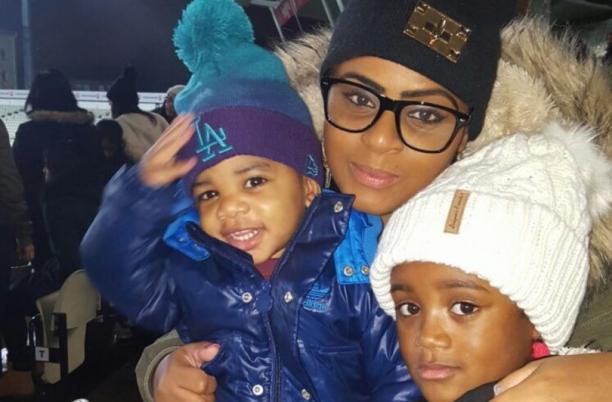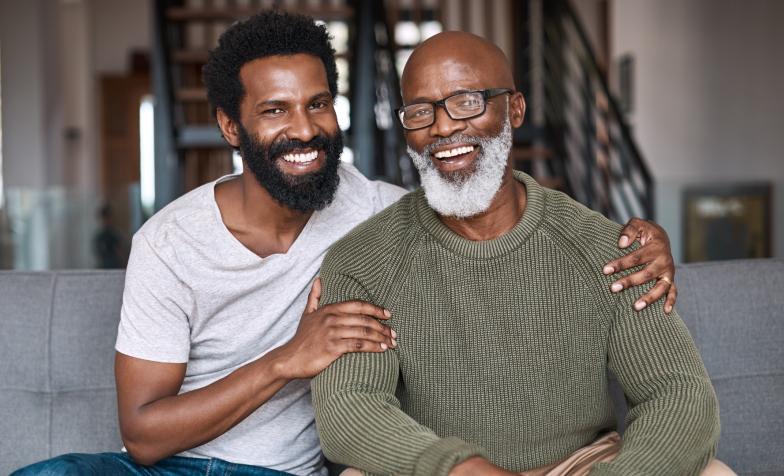

Creating special memories
When 31-year-old Rebecca Beacon was told she had just days to live, she decided she wanted to be at home with her family – and the team at John Taylor Hospice made sure her wishes were met.
In those last few days the hospice also helped Rebecca and her family create special moments to remember.
Rebecca's story
Rebecca had been diagnosed with end stage liver failure. Despite undergoing two liver transplants in three years, the mum-of-two was told her condition was terminal. After she was referred to Birmingham's John Taylor Hospice in April 2019, she was first supported by the Clinical Nurse Specialist Team, and then admitted to the hospice’s Inpatient Unit for symptom support.
A comforting environment
"Initially Rebecca didn’t want to go to the hospice at all. She had spent so long in hospital and thought the hospice would be the same," her mum Carol Lawrence says. "But she agreed to go in for a weekend, and from the minute she arrived she was sold.
"She loved it, and the staff were amazing. It felt more like a home, and was a warm place for her. She loved the freedom of the children being able to visit and run around the garden. It put a smile on her face and she became more relaxed.
"The nurses would find time to come in and talk to her and she loved that. They didn’t just come in, take her temperature and go - they wanted to find out who she was."
Rebecca was hugely popular, so much so that more than 150 people visited her at home in her last few days to say goodbye. Mum to 11-year-old Ma’leiah and five-year-old Khias, she was the soul of the party and totally dedicated to her family.
Her sister Emma recalls: "She was one of the kindest people I know. She was always looking after mum and me – even when she was the one who was sick. She loved to surprise you and always had presents. She had a real sense of humour. She loved to party and would invite everyone to hers. She loved to be the hostess, even when she was really sick."
Support every step of the way
Members of John Taylor's Hospice at Home Team were on hand to help when Rebecca decided to return home to die surrounded by her loved ones.
"Rebecca had spent the best part of nearly three years in hospital, and for long periods each time" her mum Carol says. "This was really difficult for her because she had two children. She wanted to come home and pass away in her home environment, so that the children could be with her right up to the day she passed.
"The Hospice at Home Team were amazing and made it possible for us to bring her home. At first we were nervous as we weren’t sure we could cope with it, but to have the team on board for the last week of her life was a blessing. They were like part of the family. Even if we struggled, it made such a difference to know that there was support there if we needed it."
This support extended to details like helping with Rebecca’s hair and skin routine. "They really understood us," Carol adds. "I am of Afro-Caribbean descent and we do things in certain ways but they took all of that on. Things that really mattered to Rebecca in her personal care because of her mixed descent, they did them all. Rebecca had the best care she could have possibly wanted."
During these last few days for Rebecca at home, the hospice arranged support for her and her family through a personal health budget (PHB).
This is a new way of funding healthcare that's administered by the hospice in partnership with Birmingham and Solihull Clinical Commissioning Group, Birmingham Voluntary Service Council and Birmingham City Council (via the Better Care Fund).
PHBs allow patients to choose services and support that matter most to them, enabling the hospice to work in partnership with patients and their families to fund individually tailored care packages that meet their specific needs – and in Becky’s case make special memories towards the end.
Creating precious memories
"Rebecca was always in and out of hospital. It was a real shock for the family when she went in as usual, and was told she had three days to live. It was all so sudden", Carol says.
"It was coming up to Halloween and Rebecca always had a huge Halloween party for her friends and their children, with fireworks and everyone dressed up in costumes. She was well known for organising parties. I don’t know how they did it but the Personal Health Budget project arranged a Halloween party. They organised food for the party, masks and costumes for the children.
"The party took place with all the children and we opened the window for the fireworks, because although Becky couldn’t respond any more, she could hear. That was a beautiful thing that the hospice did for us.
"The children were given beautiful memory boxes with her things. She always wore sunglasses, and we put the sunglasses, lipsticks, and things that she never went without in there."
The PHB project also made sure Rebecca’s children would have something to remember her by. "The hospice’s inpatient team gave the children a build-a-bear with her voice recorded”, Carol says.
"They go to bed with it every night and they say to me, ‘Nanny, say goodnight to Mommy’ because they relate to that bear as their mum. Those messages were the last things Becky was able to say. You can hear from her voice that she was struggling, but she did it.
"We also had a lady come and do hand casts of the children’s and Rebecca's hands intertwined together. That helped them through that journey. It was explained that Mommy wanted them to have it so they would remember her.
"That time was very difficult for our family but the hospice's support helped to make it so special" Carol says. "I don’t think we could have managed without them, it would have been a very dark time.
"Rebecca wanted to be at home with the people she loved and the hospice gave her that. I can’t thank them enough for making that possible. Because of their support, her death became the beautiful thing that it was."


